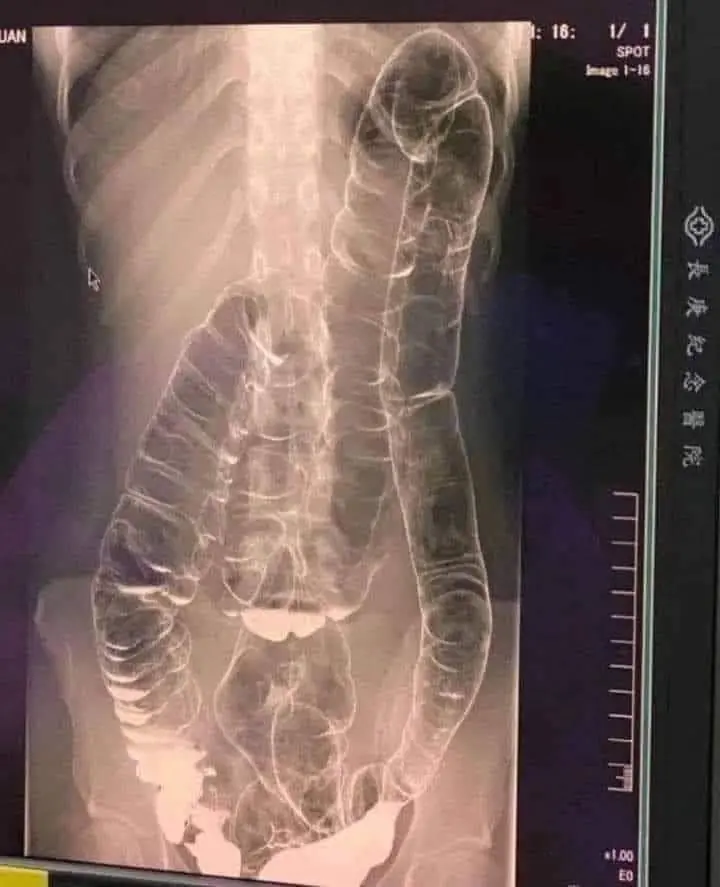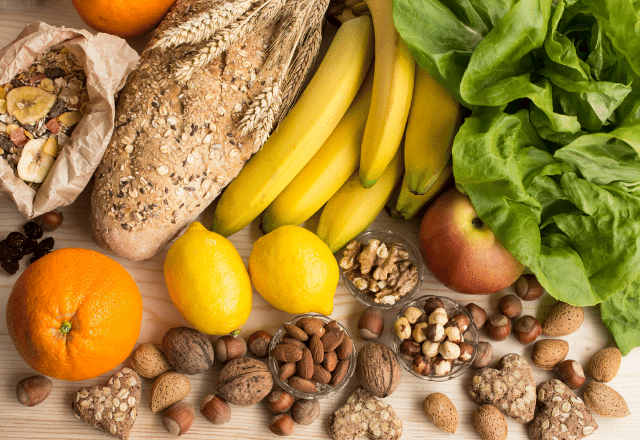Constipation might seem like a minor inconvenience, but when ignored for too long, it can spiral into severe health complications. Many people dismiss it as a temporary issue, but chronic constipation can wreak havoc on your digestive system and overall well-being.
One alarming case highlights just how dangerous untreated constipation can be. A young woman who suffered from chronic constipation for years went over two weeks without a bowel movement. When she finally sought medical help, the results were shocking—her colon had expanded so much that it reached her chest. This real-life case serves as a wake-up call about the dangers of prolonged constipation.

What Happens When You Ignore Chronic Constipation?
Constipation isn’t just about discomfort; it’s a sign that your body is struggling to eliminate waste efficiently. When waste accumulates in the colon, it stretches beyond its normal capacity, causing severe bloating, discomfort, and potential long-term damage.
Here’s what happens when constipation is left untreated:
Severe Colon Distension – A Dangerous Expansion
When stool remains in the colon for too long, the large intestine is forced to stretch beyond its limits. This extreme bloating and distension can lead to:
- A weakened colon that loses its natural ability to contract and push waste forward.
- Increased difficulty in passing stool, making the condition worse over time.
- Compression of nearby organs, causing abdominal pain and digestive issues.
Video : Constipation: The Silent Danger Hiding in Your Gut and How to Avoid It
Toxin Build-Up – A Silent Poison
A sluggish digestive system doesn’t just affect bowel movements—it allows harmful toxins to be reabsorbed into the bloodstream. This can lead to:
- Chronic fatigue and brain fog.
- Skin issues like acne and dull complexion.
- Persistent bloating and digestive discomfort.
- Weakened immunity, making the body more susceptible to infections.
Painful Hemorrhoids & Anal Fissures
Straining to pass hard stools puts excessive pressure on the rectal veins, leading to:
- Hemorrhoids – Swollen, inflamed veins in the rectum that cause itching, discomfort, and bleeding.
- Anal fissures – Small tears in the lining of the anus, making bowel movements excruciatingly painful.
Both conditions can be avoided with proper hydration, fiber intake, and timely bathroom habits.
Bowel Obstruction – A Life-Threatening Emergency
One of the most severe risks of chronic constipation is intestinal blockage or bowel obstruction. This occurs when waste completely clogs the intestines, leading to:
- Excruciating abdominal pain and swelling.
- Vomiting and inability to pass gas.
- Blocked blood supply to the intestines, which can cause tissue death (necrosis).
In severe cases, emergency surgery may be required to remove the damaged portion of the intestine.

Increased Risk of Colon Cancer
Studies suggest that chronic constipation may contribute to a higher risk of colorectal cancer. Here’s why:
- The longer waste sits in the colon, the longer it exposes the intestinal lining to toxins.
- Inflammation and irritation of the colon can trigger abnormal cell growth.
- Over time, repeated damage increases the likelihood of colorectal cancer development.
How to Prevent and Treat Chronic Constipation Naturally
The good news? Constipation is manageable and preventable with a few simple lifestyle changes. Here’s how to keep your digestive system running smoothly:
Boost Your Fiber Intake – Nature’s Digestive Fix
Fiber acts like a natural broom for your digestive tract, sweeping waste through your intestines. Increase your intake by eating:
- Fruits like apples, pears, and prunes.
- Vegetables such as spinach, carrots, and broccoli.
- Whole grains like oats, brown rice, and quinoa.
- Nuts and seeds, especially flaxseeds and chia seeds.
Hydrate Your Gut – Water is Essential
Dehydration is a leading cause of constipation. Aim to drink 8-12 cups of water per day to keep stools soft and easy to pass. Try:
- Starting your morning with warm lemon water to stimulate digestion.
- Sipping herbal teas like ginger or peppermint, which soothe the gut.
- Avoiding excessive caffeine and alcohol, as they can dehydrate the body.
Video : Man’s Extreme Constipation Nearly Kills Him
Move Your Body – Stay Active for Regularity
Physical activity stimulates intestinal contractions, making it easier to pass waste. Incorporate:
- Daily walks – Just 15-30 minutes can improve digestion.
- Yoga poses like twists and forward bends, which massage the intestines.
- Stretching exercises to activate the abdominal muscles.
Establish a Consistent Bathroom Routine
Your body thrives on routine. Train yourself to use the bathroom at a regular time each day, preferably after meals. Avoid holding in bowel movements, as this can worsen constipation over time.
Limit Processed & Low-Fiber Foods
Certain foods slow down digestion and contribute to constipation, including:
- Fried and greasy foods.
- Dairy products like cheese and ice cream.
- Refined grains (white bread, pastries, and pasta).
- Sugary snacks and carbonated drinks.

Try Natural Remedies for Constipation Relief
If you’re struggling with constipation, try:
- Aloe vera juice – A gentle, natural laxative.
- Magnesium supplements – Helps relax the intestines and promote bowel movements.
- Probiotic-rich foods – Yogurt, kefir, and fermented foods support healthy gut bacteria.
🚨 When to Seek Medical Help
If you haven’t had a bowel movement in 2-3 days, start paying attention to your diet and habits. However, seek medical attention immediately if you experience:
- Severe abdominal pain or bloating.
- Vomiting or nausea.
- Blood in your stool.
- No bowel movements for over a week despite trying remedies.
Final Thoughts – Don’t Ignore the Warning Signs
Constipation isn’t just an uncomfortable inconvenience—it’s a red flag from your body. Ignoring it can lead to severe complications that could impact your long-term health.
By making small yet powerful lifestyle changes—like eating more fiber, staying hydrated, and keeping your body active—you can prevent constipation and protect your digestive health.